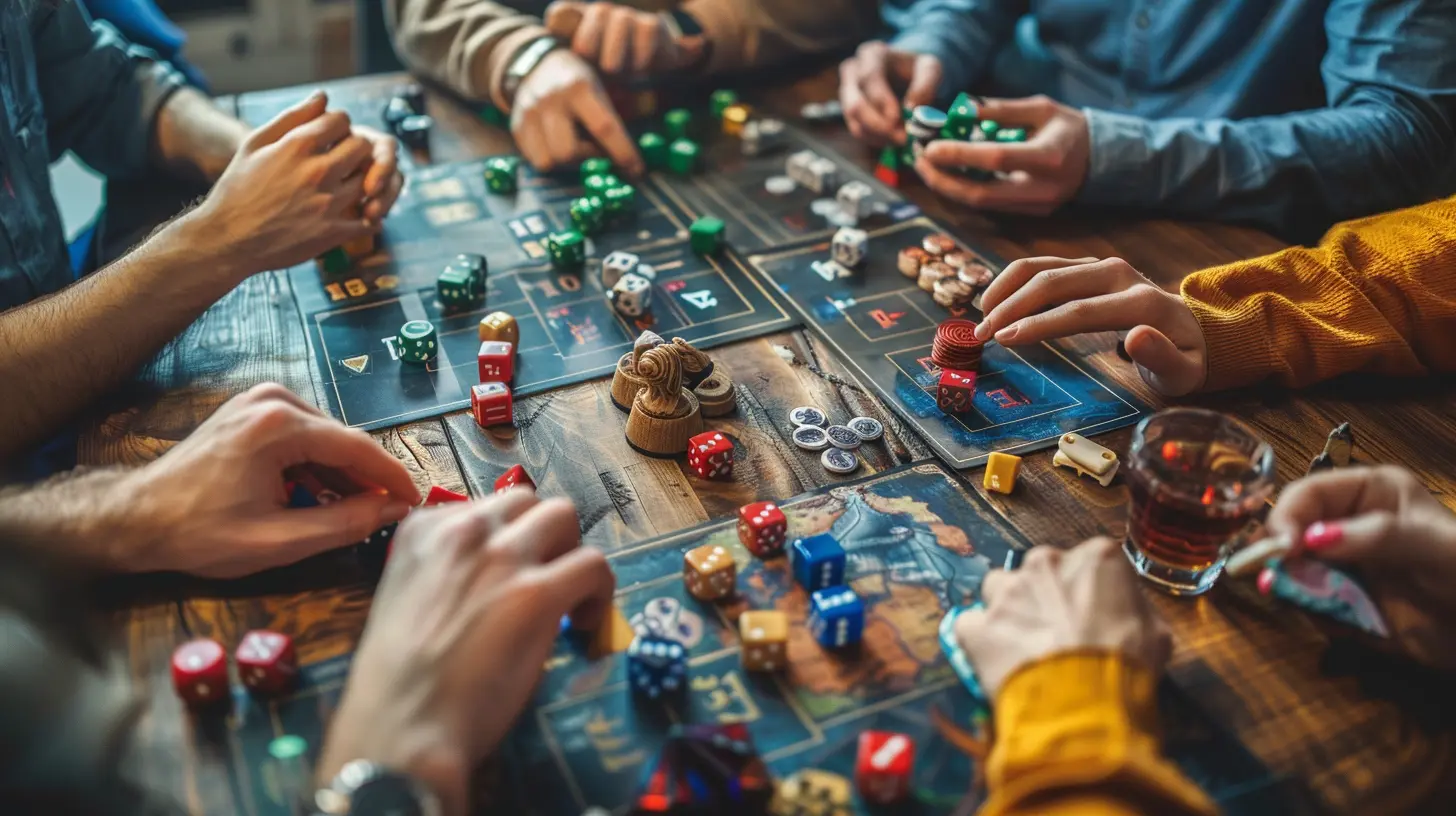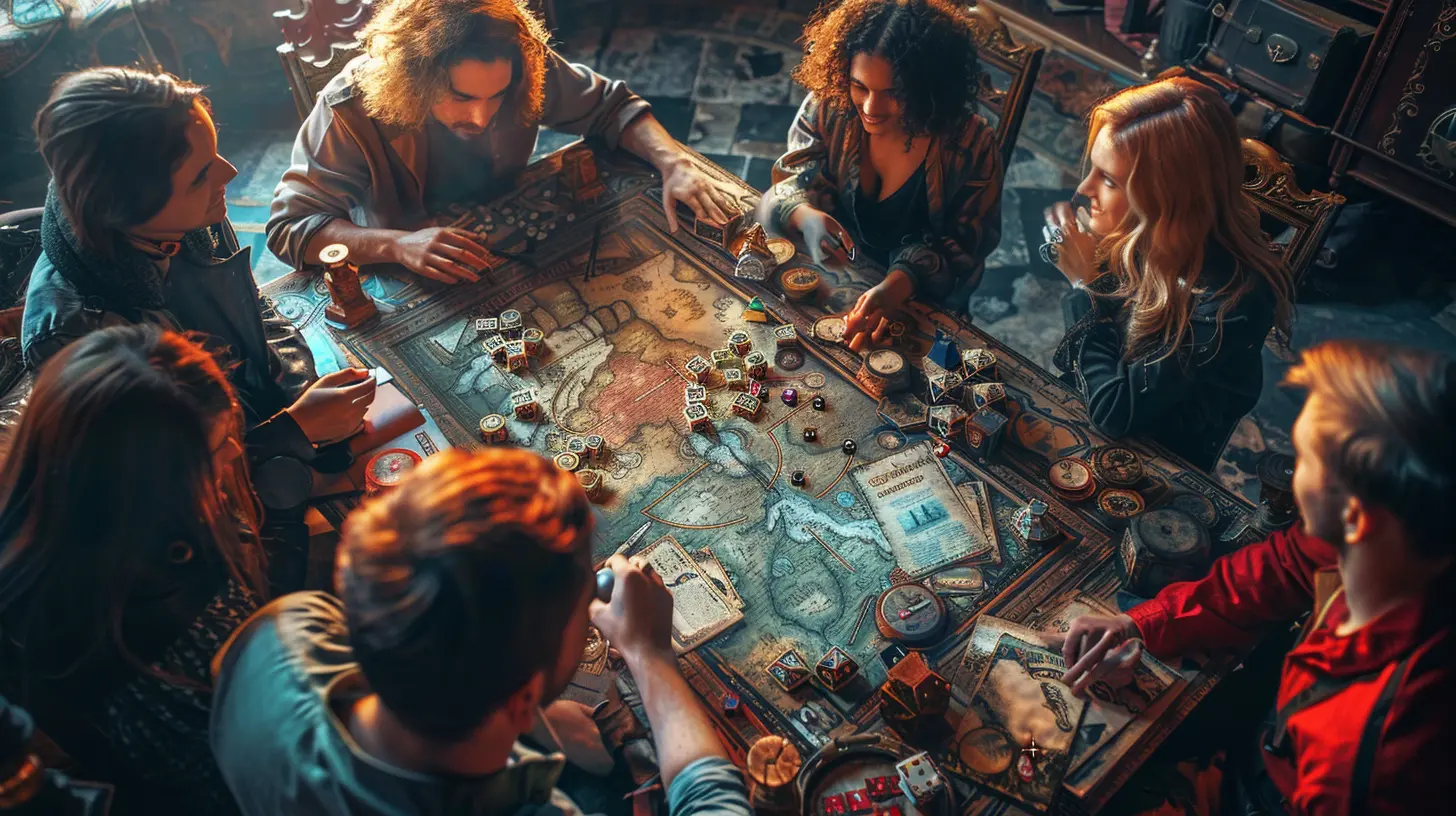12 April 2025
Do you know what’s better than winning a game? Winning with your friends! Cooperative games are all about teamwork, coordination, and having a laugh as you work toward a shared goal. Whether you’re trying to survive a zombie apocalypse, outsmart an alien invasion, or solve a murder mystery, playing co-op games can provide some of the most rewarding gaming experiences out there.
But let’s get real — just because you’re working together doesn’t mean things will always be smooth sailing. Strategies, communication, and a touch of patience can make or break your chances of success. If you and your crew are ready to crush your next co-op session, buckle up! I’m about to share some top-tier strategies to ensure you dominate every step of the way. So, grab your snacks, adjust your headsets, and let’s do this!
1. Communication Is King
Imagine trying to coordinate a heist without talking to your team — it’s like trying to play soccer blindfolded. In cooperative games, clear communication is the MVP. Whether you’re discussing who’s covering which angle in Left 4 Dead or planning how to distribute tasks in Overcooked, you’ve got to talk it out.Some Tips for Better Communication:
- Be Specific: Don’t just yell “Help!” Say something like, “I’m going to the north side. Cover me while I grab the loot.”- Stay Calm: It’s easy to panic mid-game, but keep a cool head. Screaming in chaos doesn’t help anyone.
- Use Callouts: Many games have pre-set signals, pings, or commands. Use them to keep things efficient without having to explain every move verbally.
- Practice Active Listening: Yep, it’s not just about talking. Make sure you’re listening to what your teammates have to say too.
Pro Tip: If your group tends to turn into a shouting match (it happens to the best of us), try assigning roles for communication. For example, one person could act as the "team leader" to keep things organized.
2. Play to Everyone’s Strengths
Think about it: would you ask your clumsy friend to defuse a bomb? Probably not. The same logic applies to co-op games. Everyone in your group has their own unique playstyle and strengths, so why not lean into that?How to Divvy Up Roles:
- The Strategist: Some players love planning and thinking ahead. Let them take charge of setting up strategies.- The Tank: Got a friend who loves running into the chaos? They’re perfect for tanking or drawing enemy fire.
- The Support: Every team needs someone who’s good at healing or backing others up when things get tough.
- The Jack-of-All-Trades: Some gamers are adaptable and can do a little bit of everything. Use them as your wild card.
Assign roles based on what feels natural for each player. When everyone knows their job, it’s much easier to stay organized and dominate the game.
3. Study the Game Mechanics
You wouldn’t start a road trip without a map, right? (Or at least, I hope you wouldn’t.) The same goes for cooperative games — understanding how the game works is absolutely crucial. Before diving in headfirst, take some time to learn the mechanics, rules, and objectives.What to Focus On:
- Objectives: What’s the end goal? Is it survival, completing quests, or scoring points?- Enemies: Learn about the types of threats you’ll face. Are they fast, strong, or sneaky? Knowing this helps you prepare counter-strategies.
- Resources: Understand what’s limited (ammo, food, health kits) so you can prioritize and share them wisely.
- Game-specific quirks: Some games have unique mechanics, like in Phasmophobia, where speaking too loudly can attract ghosts. Learn these nuances early to avoid mistakes.
Don’t forget to share what you’ve learned with your team. Even if one person picks up a key detail, it can make a world of difference for the group.
4. Stick Together, but Give Each Other Space
Yes, teamwork makes the dream work, but you don’t always need to move as a clump. Splitting up in a controlled way can help cover more ground or complete tasks faster. On the flip side, you also don’t want to be so spread out that no one can reach you if things go south.Tips for Balancing Distance:
- Stay within reach so you can back each other up quickly if needed.- Designate partners or mini-teams if the game requires you to split up. For example, two players can handle one task while another pair tackles something else.
- Always communicate your location and actions. If you’re wandering off, let the team know where you’re headed.
It’s a bit like hiking with friends — you don’t all need to walk single file, but keep each other in sight to avoid getting lost.
5. Be Adaptable
Flexibility is your secret weapon in co-op games, because let’s face it: not everything will go as planned. A perfectly good strategy can get derailed by a surprise boss fight or a rogue teammate who accidentally triggers the alarm (we’ve all been there).How to Stay Adaptable:
- Keep backup plans. When Plan A fails, you’ll need a Plan B (and maybe even a Plan C).- Be willing to switch roles on the fly. If the healer goes down, someone else needs to step up and take over.
- Stay focused on your main objective, but don’t be afraid to improvise and adjust if something unexpected happens.
Think of it like a game of dodgeball. You’ve got to stay on your toes and be ready to change direction at any moment.
6. Practice (and Learn from Your Failures)
Nobody becomes a pro overnight — success in cooperative games often comes after trial and error. Treat every failed mission as an opportunity to improve. What went wrong? Was it poor communication, bad timing, or just plain bad luck? Take notes and tweak your strategy for the next round.Here’s a Simple Way to Improve Over Time:
1. Review: After a game, talk with your team about what worked and what didn’t.2. Adjust: Tweak your roles, communication, or strategy based on what you learned.
3. Repeat: Keep practicing until you’ve ironed out the wrinkles.
Remember, even the best teams have off days. The key is sticking together, even when things don’t go perfectly.
7. Have Fun and Don’t Take It Too Seriously
At the end of the day, cooperative games are about having a good time with your friends. Sure, winning is awesome, but don’t let the pressure to succeed ruin the experience. Laugh at your mistakes, celebrate your victories (no matter how small), and enjoy the ride.It’s like baking a cake with your friends. It might get messy, and the cake might not turn out perfect, but the memories you make along the way are what really matter.




Isabella Alvarez
True dominance in cooperative games lies not in victory, but in the bonds forged through teamwork.
April 13, 2025 at 2:33 AM